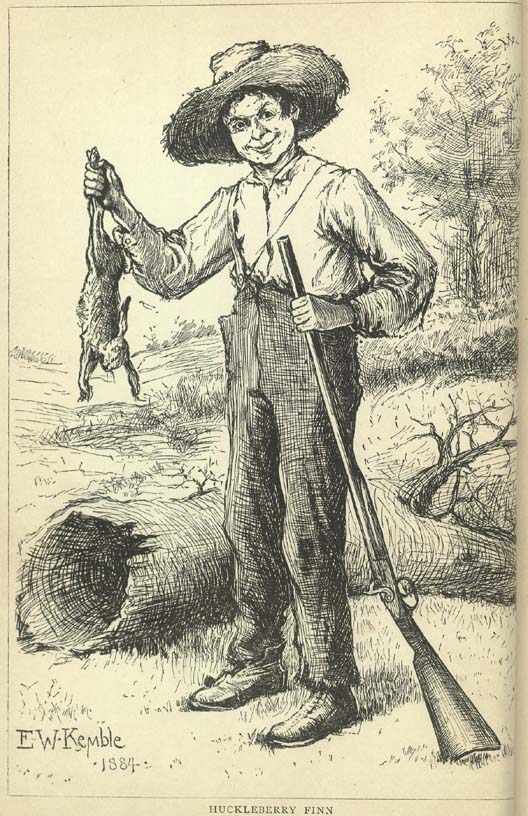
Here’s a personal story of how a literary classic came to my aid at a critical time in my life. When I was in sixth grade in Sewanee, Tennessee (the year was 1962), I was a plaintiff in a civil rights case. School systems all over the south were defying the Brown vs. Board of Education Supreme Court ruling and remaining segregated, including the one in Franklin County, Tennessee. Therefore, three white families and three black families in Sewanee joined together to sue our board for failing to comply with the law and for depriving their children of the right to attend integrated schools.
Of course, being only 11, I had no idea of how historically momentous the occasion was. All I knew was that my life became very unpleasant and that I was called “nigger lover” by a number of classmates. Being a shy and sensitive boy, I retreated into my world of books, especially the fantasies of C.S. Lewis and J.R.R. Tolkien.
But my father also read me Huckleberry Finn, and I fell in love with the friendship between Huck and Jim. I was especially moved by what is arguably the most famous passage in the novel where Huck wrestles with his conscience regarding Jim, who has been resold: will he accede to Jim’s fate or will he try to free him, even though it will mean (in his mind) damning his soul. Friendship trumps everything else and Huck determines to “go to hell.” His heroic act would help me take my own strong stand.
Here’s what happened. We won the suit (I remember watching my father get grilled on the witness stand as a “communist sympathizer”), and Sewanee Public School was integrated the next year. Integration happened gradually with only one black student, Ronnie Staten, admitted into our seventh grade class the first year. And I knew, in part because I had read Huckleberry Finn, that I needed to reach out to him. Although Sewanee was nothing like Little Rock or Montgomery—as an isolated college town it was more liberal than most of the south—Ronnie was still called “nigger” by some of his classmates (including, I remember, by a boy who was the son of a theology student at Sewanee’s seminary). So I reached out to him in my bumbling middle school way. I played with him during recess all the first week.
Ultimately Ronnie became a bit bored with me, I must confess. He was more interested in playing basketball with the others, and I didn’t play basketball. Who knows, maybe basketball eventually did more to include him in the life of his classmates than my well-meaning efforts. So we didn’t have a lot to do with each other after that. But that week was important to me and, hopefully, also to Ronnie. I know that Huckleberry Finn gave me a sense of the right thing to do at an age (twelve) when the overwhelming urge is to conform. To be sure, other factors also entered in, especially the way I was raised. But the Huck’s friendship and his determination to do what was right provided me inspirational images that served as a foundation.
In recent years there has been a lot of debate about Huckleberry Finn, and there are school systems that have banned it for what they see as its demeaning portrayals of blacks. I’ll write about that more tomorrow. But for me in 1963, it was a force for good.


5 Trackbacks
[…] mentioned in an earlier blog how, during the early 1960’s, I was one of the plaintiffs in a suit brought by four black […]
[…] be controversial ever since. Last May I wrote a series of posts on Huckleberry Finn, including on its importance to me as a child of liberals growing up in the segregated south . Here’s an account of how Mark Twain impersonator Hal Holbrook shook up CBS in the […]
[…] You can read my discussions of that criticism in a series of posts beginning here, here, and here. At the moment, however, I want to comment on the positive space that a good book can open […]
[…] Incidentally, you can read my series of posts about Huckleberry Finn and race and how the book helped me survive my own race battles in rural Tennessee in 1963. The series starts with this one. […]
[…] have written here how the book, in 1962, helped me handle the pressures of desegregation—pressures that were […]